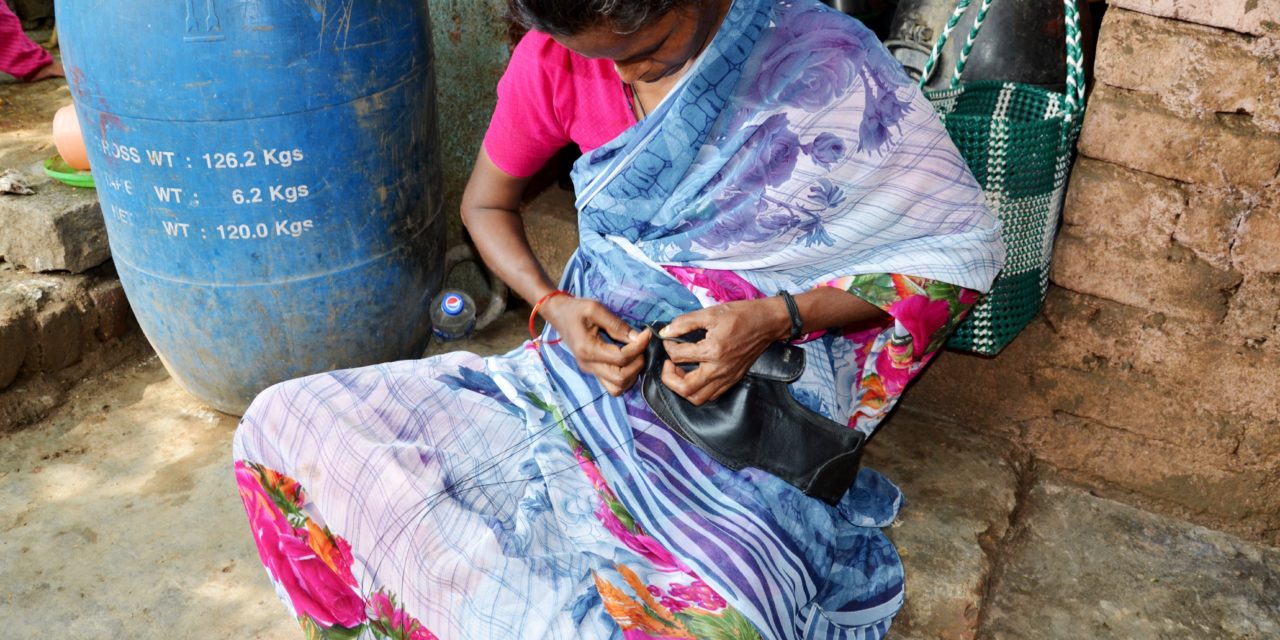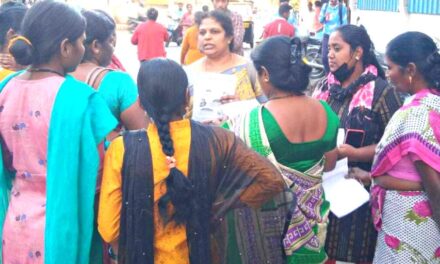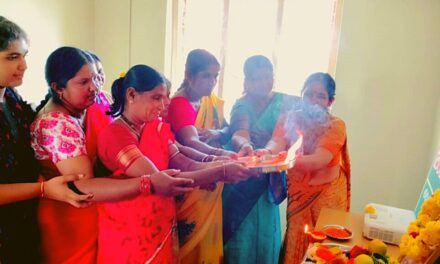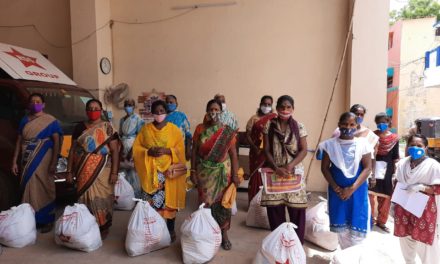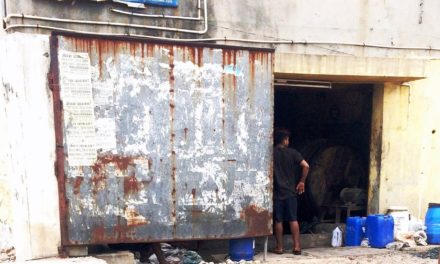The global footwear industry produces tens of billions of pairs of shoes every year, of which 40% are imported into Europe. An even larger proportion, amounting to just under 90%, as is produced by poor communities across export hubs in Asia. The Indian town of Ambur, Tamil Nadu, whose economy is largely defined by its booming leather sector, is one of these hubs.
Critical to the production process is a largely invisible group of women who do some of the most labor-intensive work: hand stitching leather ‘uppers’ for the shoes. They work out of their homes, providing flexible and low-cost labour. Despite the significance of home-workers’ contributions, they are not recognized as employees by the factories, or as workers by the government. They receive the lowest pay in the industry, lack access to the social security and employment benefits that formalized workers have, and suffer a number of occupational health issues over their lifetimes.
The Covid-19 pandemic has only enhanced these vulnerabilities. Two women speak about how their lives have changed in recent months:
Sangeetha*
“I learned to stitch shoes when I was 20, five years after I got married. I continue to do this work now at 56. Apart from my younger son, almost all of my family members are doing footwear- and leather-related jobs. My husband used to work in a tannery, but suffered lung disease due to the prolonged exposure to chemicals in that job, and he now stays at home. My elder son works at a shoe company for six months out of the year, and my daughter used to do the same before she had to stop due to a back problem. My daughters-in-law stitch uppers at home, like me.
Normally, I earn around INR 2,000 to 2,500** per month, and my husband receives INR 1,000 from his old age pension. We depend on both of these incomes to support our family. They both stopped during the lockdown, and it made life very difficult. Many families could eat only because of the free rice they got from the Public Distribution System (PDS). Even after the lockdown relaxed, our situation did not improve as we expected. Due to lack of work, we are in a very hard position to manage the family expenses. In my village, women are highly skilled and usually stitch 30 to 40 shoes per day. After a long gap, we recently started getting only 2 to 3 pairs a day.
Since the lockdown this year, the agents told us that the companies and factories are not paying them on time, so our wages would also be delayed. In some cases, I have even lost money when the agent who took the stitched shoes did not pay the wages for the work we have done. I have lost around INR 2,000, and many young women who do the work very fast lost more than INR 3,000. When we asked why, the agent told us that due to lockdown and travel restrictions, the stitched shoes did not get exported, so the company did not make the payments. But we heard that the company already paid the money to the agent, so we suspect that they swallowed the money and are cheating us.
Lakshmi*
None of the girls or women in my family are allowed to go out to work. I first started stitching shoes even before I finished school to pass time, and now it is my livelihood. I continue to work even now that I am married, have two children, and am pregnant with my third child. I usually finish around 15 pairs of shoes a day and get a piece-rate of INR 7 (€0.08), amounting to around INR 1,500 to INR 2,000 per month.
Now everything has changed. For five months starting at the beginning of the lockdown, we got no work. In the past month, we have started to get a maximum of five pairs per day, but we don’t get properly paid for them. Agents tell us that they can only make the payments after a month once the factories pay them, and sometimes it takes even longer than that. We can’t question them because they will take the work elsewhere if we do. We cannot even work with new agents who promise higher piece rates – when we have in the past, they have collected the stitched shoes and never come back again.
Usually, a contractor or agent takes the orders from the company directly, and then this person directly or through another sub-agent gives the work to an agent in the local village. That local person distributes the work to the women in the village. Each person takes their commissions and the remaining amount is paid as wages to the workers who really make the stitches. We are not aware of the actual rate the company pays to the agents per piece but we know that the amount we get per piece is not enough to make our living.
Marking International Home-based Workers Day
The 20th of October is the International Day for Home-Based Workers across the globe. Cividep and home-based workers came together in small gatherings, in adherence to social distancing guidelines, at the Workers’ Resource Centre in Ambur to mark the occasion.
Women in Ambur gathered on 20th October to discuss their experience of the Covid-19 pandemic and lockdowns, and their needs as workers.
Reflecting on this year and the immense hardship and upheaval they have faced along with their families, women said that this lockdown made them realize the importance of organizing and leadership, in getting their voices heard. Their demands include:
- Formal recognition as workers with access to entitlements from the government as well as factories
- Government-mandated legal minimum wages for homeworkers
- Increased piece-rate wages and regular year-long employment from factories
- Payment of unemployment allowances or connection to alternative employment opportunities when there is no work
- Access to social security benefits e.g. Employees’ State Insurance (ESI), Provident Fund (PF), etc.
- Timely handover of wages immediately after completion of work, carried out by the company whenever the agents delay or fail to comply
In the words of Lakshmi: “We do not get anything aside from the small wages – no social security, ESI or PF, or bonus. If we worked in a company, they would provide at least minimal support, and there would be an ID card to identify us as workers. As we are working from home, we do not have that. We are not doing this work for time to pass. This is our livelihood and we need to be recognized and given social security just like any other worker.”
*names have been changed
** €1 is equivalent to approximately INR 88 at the time of writing. The piece rate of INR 7 is roughly equivalent to €0.08. Sangeetha and Lakshmi’s typical average monthly wages prior to lockdown were approximately INR 2,000 to 2,500 (€23 to €29) and INR 1,500 to INR 2,000 (€20 to €23) respectively.

